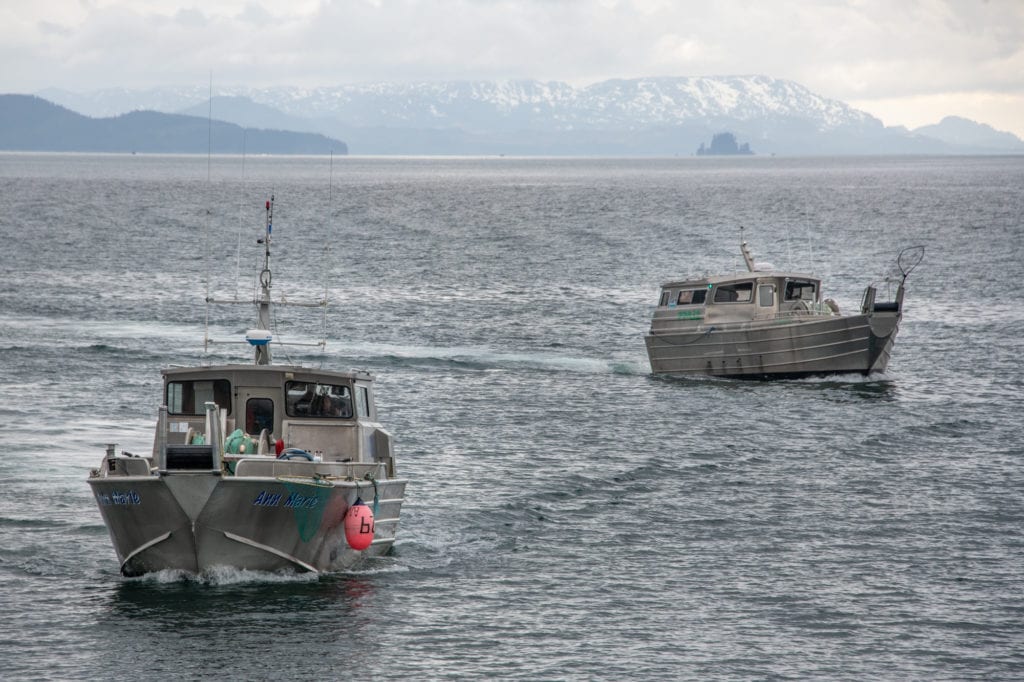
Alaska’s COVID-19 vaccination program has been expanded to include nonresidents working as frontline essential workers employed by fisheries, mining and oil companies, state officials announced on Wednesday, Feb. 10.
The message from the Dunleavy administration to dozens of people in all three industries via email acknowledged the importance of protecting seasonal and rotational workers, which in turn protects the communities in which they work.
Vaccines will be provided to all those who qualify as essential workers, whether resident or nonresident, provided that they meet criteria under the existing vaccine rollout.
All three industries collectively contribute substantially to the overall economy and workforce of Alaska, and, since the pandemic began, have spent millions of dollars in an effort to slow the spread of the novel coronavirus. The seafood industry, which brings in hundreds of workers year-round for processing groundfish, shellfish, salmon, halibut and more, is of particular concern because of its operations in rural communities with limited medical facilities and a lingering memory of the 1918 pandemic that killed hundreds of people.
“While working in our state or fishing in our waters, we intend to protect your workers with the same standard of care we are extending to all Alaskans,” said the letter from Health and Social Services Commissioner Adam Crum and Ben Stevens, Dunleavy’s chief of staff.
State officials are planning a series of industry meetings where they will share information about current allocations, discuss plans and partner with these industries to begin vaccinating their employees.
Employers will have to provide each worker with a letter stating that they are a member of the state’s Critical Infrastructure and Essential Services Workforce who will be in Alaska for 60 consecutive days or longer. The letter must also characterize their risk of exposure and whether or not they work in, or travel to, a rural community.
Industry officials were cautioned that all individuals receiving the vaccines in Alaska must receive their first and second doses from the same provider, so they should not allow workers to receive their first dose at a location where they will not be able to receive their second dose at the appropriate time.
In order to be eligible to receive vaccination, non-resident workers must meet other eligibility criteria related to their age, underlying conditions, risk of exposure and other factors.
The expanded distribution of COVID-19 vaccines also includes Alaskans 50 and over who have a high-risk medical condition or who work in an essential job around others, plus many education workers regardless of age, some COVID-19 response workers and anyone who lives or works in certain settings where people congregate.














